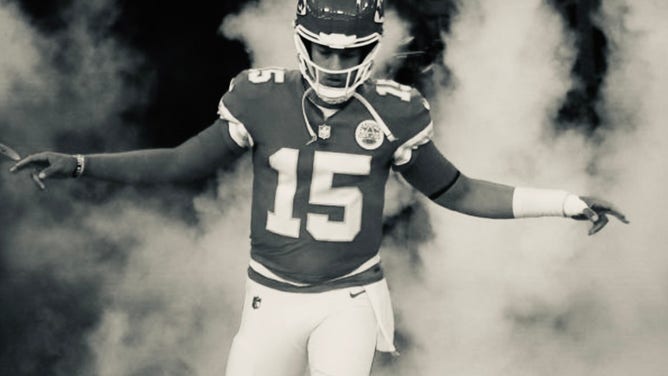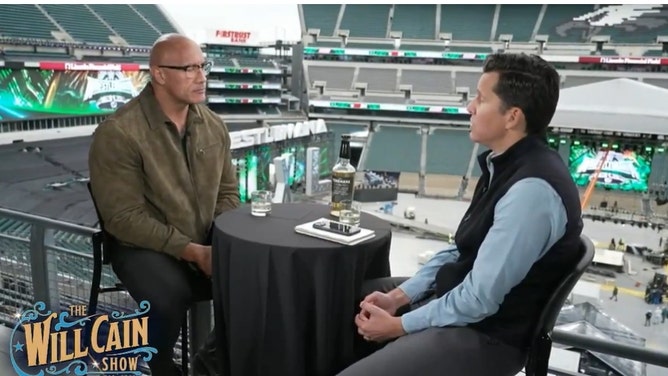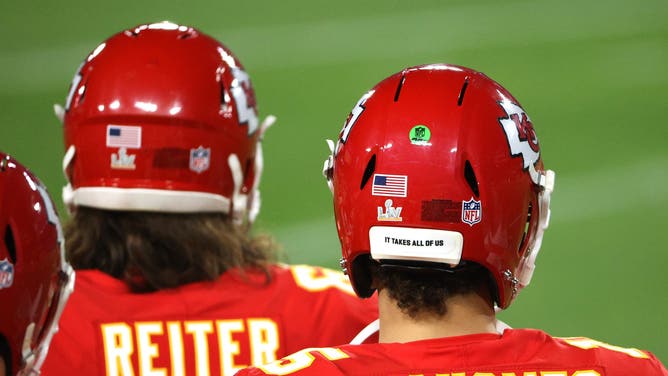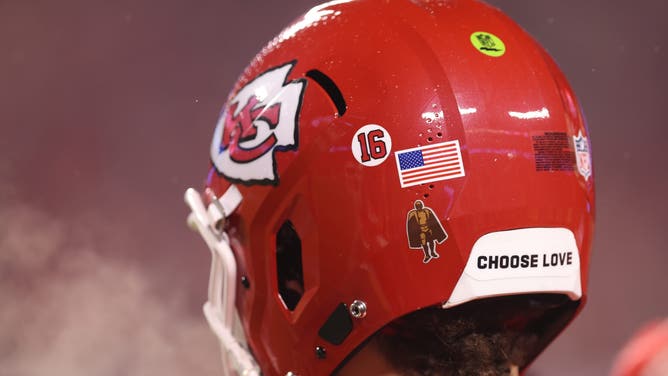Patrick Mahomes Knows Republicans Buy Sneakers Too | Bobby Burack
Patrick Mahomes is the face of the NFL, one of the last remaining mono-cultural entities in society. His status atop the sport could span well over a decade. He's just 28 years old.
Mahomes has the talent, résumé, charisma, and star power to be every bit as influential as Michael Jordan or LeBron James, well exceeding Tom Brady who concealed his personality for much of his (for now) GOAT-ed career.
The question then transitions to whether Mahomes will be more Jordan or more LeBron. The dividing line between the latter characters is not just NBA Finals wins and losses, but their participation in American politics.
Jordan was an apolitical figure. The NBA peaked during the height of his career.
"Republicans buy sneakers too," goes his famous mantra. Despite downplaying the meaning of the phrase during the "Last Dance" documentary in 2020 – he claimed to utter the phrase "in jest" – fans knew the meaning.
Michael Jordan understood a venture into political activism would turn off whatever half of the country at which he scoffed.
Meanwhile, LeBron James was the most famous U.S. athlete of the social media era. He is/was every bit the cultural icon Jordan was, in terms of an off-the-court sensation.
Yet unlike Jordan, LeBron used his influence to disrupt political discourse -- be it regarding Donald Trump, BLM, Covid, policing in America or George Floyd.
LeBron often showed himself to be uninformed about various political topics on which he spoke. He's not that bright. Or eloquent.
Nonetheless, LeBron's political escapades hindered the general popularity of the NBA. Viewership for the league declined by around 45 percent since 2012, the year LeBron surpassed Kobe Bryant as the biggest star in the NBA.
As Clay Travis argues, the NBA was the original Bud Light.
The ratings for the NBA bounced back, somewhat, over the past two seasons as the league transitioned to a period in which it is less reliant on LeBron and more focused on new, less polarizing faces: Nikola Jokić, Luka Doncic, Jayston Tatum and Anthony Edwards.
In sum, Americans at large do not want to hear the political opinions of professional athletes. Why would they?
A YouGov / Yahoo News poll found that nearly half of the country changed its sports viewing habits because of "political and social messaging" between 2016 and 2020.
That brings us back to Patrick Mahomes.

2bd30260-GettyImages-1424100271.jpg
Time magazine recognized Mahomes in its latest edition of the "Most Influential People" on Tuesday. The article discussed the Super Bowl parade shooting in Kansas City last February, which Mahomes attended.
The Chiefs quarterback offered his condolences, donated money to an aid fund for victims and visited the hospital to visit some of the victims. But he did not – as other athletes and influencers did – advocate for a change in gun laws, as goes the oft-recycled progressive screeching point.
Does that mean Mahomes agrees with the state of gun laws in America? We couldn't tell you. He explained that it is not his place to tell us.
"I continue to educate myself," Mahomes said of the question. "I don't want to make a quick response to something that takes a lot of education to really learn and make a swaying comment based off that. But I know we have to find a solution of some way to make this stuff stop."
Likewise, he did not offer an endorsement for the 2024 election.
"I don’t want to pressure anyone to vote for a certain president," he told the outlet. "I want people to use their voice, whoever they believe in. I want them to do the research."
Mahomes doesn't want to interfere with the ballots of his most loyal supporters. That takes courage in this twisted society.
There is an unjust expectation that athletes and celebrities must put their names behind a presidential candidate. That way, the gatekeepers of the Cool Kid's Club know whether to amplify or belittle the influencer.
Choosing leftist orthodoxy over political ambiguity is a far safer strategy in 2024. Earlier this month, the usual suspects in the corporate media – from MSNBC to Jemele Hill to Vanity Fair – called Dwayne "The Rock" Johnson a "coward" for not endorsing Joe Biden as he did in 2020.

Expect the hyenas to express a similar displeasure toward Mahomes as well, as in a ploy to browbeat him into an endorsement of gun laws. Hopefully, he doesn't cave.
So far, he hasn't.
In 2020, the NFL approved players to don "Black Lives Matter" and "End Racism" decals on their helmets. "Black Lives Matter," as in the controversial Marxist political organization.
Many players did wear "BLM" on their helmets, including Jalen Hurts, Sam Darnold, and Deshaun Watson. Mahomes instead opted for the most politically-benign messaging available, such as decals promoting "Choose Love" and "It Takes All Of Us."


Sports are intended to be an escapism, a venue in which each side of the political spectrum is welcome. Fans prefer that. Unfortunately, pressured and morally superior athletes ruined that pleasure for some fans.
The hate for LeBron James, Colin Kaepernick and now Aaron Rodgers is real. It's evident.
The "hate" for Mahomes is mostly good-natured. He has an eccentric wife, a cartoon-ish voice, and slays the wills of competing fan bases. However, as the lead character of the most popular show on television, the NFL, his stardom binds political opponents together.
Mahomes is a football player. He is the winning quarterback for the two highest-rated Super Bowls on record. He is on track to be the greatest quarterback player of all time. He's not a puppet or a useful idiot for the cultural elites.
Patrick Mahomes is Michael Jordan. He understands Republicans buy sneakers too.